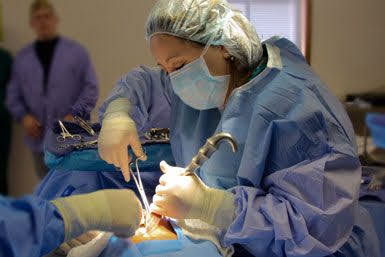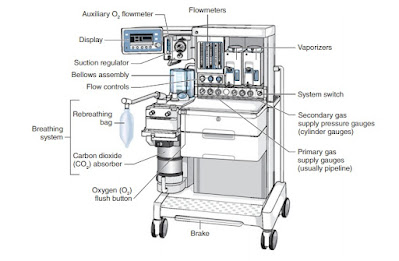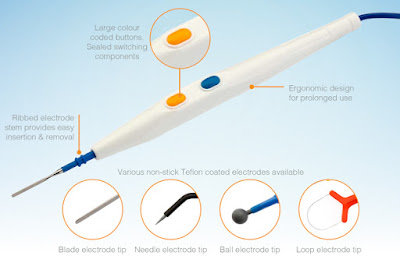Essential Preoperative Tests You Need to Know About
Essential Preoperative Tests You Need to Know About
Preoperative tests are a set of essential medical screenings performed before a planned (elective) surgery. Even if you're in good health, these tests provide crucial insights into any underlying conditions that could affect your surgery or recovery.
The specific tests you'll need before your operation depend on various factors, such as your age, overall health, medical history, medications, and the type of surgery you’re having. Let’s take a closer look at the most common preoperative tests and their purposes:
1. Full Blood Count (FBC)
A Full Blood Count measures the levels of red blood cells, white blood cells, and platelets in your blood. This test helps detect conditions like anemia or thrombocytopenia (low platelet count), which could increase your risk of bleeding during surgery. If any abnormalities are found, your medical team may take extra precautions to minimize risks.
2. Blood Clotting Tests
These tests, including Prothrombin Time (PT), International Normalized Ratio (INR), and Activated Partial Thromboplastin Time (aPTT), measure how well your blood clots and how long it takes to clot. If you're taking blood-thinning medications (like warfarin) or have a history of liver or vascular issues, these tests are especially important to assess your bleeding risk during surgery.
3. Blood Gases (ABG)
An arterial blood gas (ABG) test measures the levels of oxygen and carbon dioxide in your blood. If you have heart or lung conditions, this test helps your healthcare provider understand how well your body can manage oxygen during surgery. It’s typically done for patients with existing respiratory issues.
4. Blood Glucose
A blood glucose test checks for diabetes or issues with blood sugar regulation. High or uncontrolled blood sugar can affect how well you heal after surgery, so knowing your levels in advance helps your doctor plan appropriate care and avoid complications.
5. Kidney Function Tests
Tests like creatinine and blood urea nitrogen (BUN) assess how well your kidneys are functioning. If you're scheduled for major surgery, especially if you have pre-existing kidney issues, your kidney function will be carefully monitored to ensure your body can handle the stress of surgery and anesthesia.
6. Sickle Cell Test
If you're of ethnic origin at risk for sickle cell disease, or if you have a family history of this inherited condition, a sickle cell test may be recommended. This test checks for sickle cell anemia or sickle cell trait, both of which can cause complications during general anesthesia. If you're a carrier, extra precautions may be taken during your surgery.
7. Pregnancy Test
If there’s a chance you could be pregnant, a pregnancy test is crucial before surgery. Anesthesia and certain surgical procedures can harm an unborn baby, so confirming pregnancy ensures that appropriate steps are taken to protect your health and that of your baby.
8. Lung Function Tests
Lung function tests, like spirometry, assess how well your lungs are working. These tests are often carried out for patients with conditions like asthma, COPD, or any history of lung disease. Ensuring optimal lung health is key for anesthesia and recovery.
9. Chest X-ray
A chest X-ray may be necessary if you're undergoing surgery related to the chest or abdomen, or if you have a history of lung disease, heart disease, or recent chest trauma. It helps doctors evaluate the health of your heart and lungs and identify any potential issues that could complicate surgery.
10. Electrocardiogram (ECG)
An ECG measures your heart’s electrical activity and is used to detect irregular heart rhythms or other cardiovascular issues. If you’re over 65, have a history of heart problems, or have diabetes or renal disease, this test is often performed to assess your heart's health before surgery.
11. Polysomnography (Sleep Study)
If you have symptoms of sleep apnea or other sleep disorders, a polysomnography or sleep study may be recommended. This overnight test monitors your sleep patterns, heart rate, oxygen levels, and other key metrics to determine whether sleep apnea or related conditions might impact your surgery.
12. MRSA Screening
If you're undergoing surgery, especially if it's a high-risk procedure, you'll likely be screened for MRSA (methicillin-resistant Staphylococcus aureus), a type of bacteria that can cause infections. This is particularly important if you've had MRSA before or if you're being admitted to a high-risk unit like the ICU or dialysis. Screening is usually done by taking swabs from areas like your nostrils or groin.
Why Are Preoperative Tests So Important?
While preoperative tests may seem like a routine part of surgery, they play a critical role in ensuring your safety. They help your healthcare team identify hidden conditions, evaluate your body’s ability to handle surgery, and tailor anesthesia and recovery plans specifically to your needs.
The exact tests you need will depend on your health, the surgery type, and individual risk factors. By taking these steps, you reduce the likelihood of unexpected complications and improve your chances for a smoother recovery.
Make sure to discuss any concerns or questions with your surgeon or healthcare provider to ensure you're fully prepared for your upcoming procedure.


